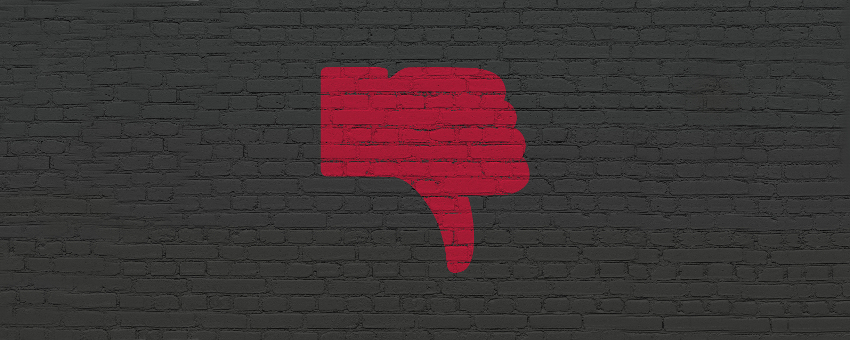Financial Assistance Alternatives for Small Businesses
Updated on September 27, 2022From The Small Business Owner’s 2022 Economic Relief Guide
If you can’t find a grant that you qualify for or you were not selected, there are other ways to fund your business.
One option is applying for a small business loan (SBL). There are different types of SBLs, but you should be able to find one that meets your needs.
Factors you’ll need to consider are:
- why you need the funding
- how much funding you need
- how fast you need the funds
- the total cost of the potential debt
- and if you meet the qualifications
We’ve done a lot of research to help you identify the best SBL for you and your business.
Loans
Small Business Loans: These types of loans are partially guaranteed by the U.S. Small Business Administration (SBA). They offer low-interest rates and long periods of repayment. The loans can also be used for a lot of different business expenses. All you have to do is go to your local bank or credit union and ask for one. The lender will then apply to the SBA for a loan guarantee. This ensures if you default on the loan, the government pays the lender the guaranteed amount. The SBA also requires that owners/partners with at least 20% ownership in the business give a personal guarantee. Between these two agreements, the risk of the loan is covered for the lender. You can find a list of the different types of SBA loans on the U.S. Small Business Administration website.
Business Term Loans: These loans are also available at your local bank or credit union.This type of loan doesn’t have any ties with the government and is the most well-known. Similar to a home or car loan, your local bank or credit union loans your business a fixed amount, and you pay it back on a determined schedule and interest rate.
Business Lines of Credit: A line of credit lets you draw from an open set of funds when you need it. Unlike SBAs, you only pay interest on the money you borrow and use. As long as you make payments on time and don’t exceed the credit limit, you can use the line of credit. This type of loan allows for more flexibility, but you should be aware of all the fees and limits associated with it. You can apply for a business line of credit at your local bank or credit union, an online lender, a business loan broker, or through an online marketplace. Some examples of online lenders include Kabbage, ondeck, and Lendio.
Equipment Financing: This loan is for funding a piece of equipment you need. The machinery or equipment serves as the collateral on the loan, so there aren’t as many qualifications. Some lenders will also cover the costs of installation, delivery, assembly and other expenses associated with getting the equipment working. The terms are usually based on the lifespan of the item you need. Some big-name banks like Wells Fargo and Bank of America will have financing for equipment, but you can also look online. Some lenders include: Triton Capital and Commercial Fleet Financing (for vehicles).
Invoice Financing: If you have outstanding customer invoices that need to be paid, this loan will help you create cash flow without payment from your outstanding clientele. A lender will loan you a specific amount of your unpaid invoices, sometimes 90%, in the form of a loan or line of credit. Once your customers pay the invoices, you can pay your lender back plus fees and interest.
Merchant Cash Advance: You’ll receive an advance of funds that you repay with a percentage of your future sales, plus a fee. This isn’t technically a loan, rather a company is buying your future sales at a discount. While you can receive these pretty quickly and can be easy to attain, they are also one of the most expensive forms of financing. Calculate the API and the fees together before making a move on this type of assistance since the interest rates and fees together can be pricey.
California Loans
Loan Guarantee Program: The California Infrastructure and Economic Development Bank, IBank, is featuring a loan guarantee program to help small businesses that experience capital access barriers. Small businesses located in California can contact the IBank Finance Center Team through their website in order to obtain more information about small business loan guarantee program financing. To find a full list of available lenders, click here. If you are interested, contact the participating lender using the listed website or phone number.
Credit Cards
If you don’t need a huge sum of money to stay afloat, but could use some leeway when it comes to covering day-to-day expenses of your business, credit cards are a good option. Not only can you purchase the things you need quickly, but you can also accumulate some great perks associated with the card, like frequent flyer miles, cash back bonuses, and more.
Back in the early years of starting PostcardMania, I used credit cards to get by until more business came in. Once we found our “secret sauce” so to speak on our marketing and started receiving leads in droves, we were able to pay off those credit cards and get back on track. Without them, it would have been difficult to get what I needed at the time in order to accomplish my future goals and become more profitable.
Here are just a few credit cards that don’t have annual fees and offer some nice perks to get you started.
Ink Business Unlimited Credit Card
Annual Fee: $0 – Introductory for the first 12 months
Rewards: 1.5% Cash Back, Gift Cards, Travel and More
Recommended Credit Score: 690-850
*This perk is that you’ll receive $750 bonus cash back after spending $7,500 within the first 3 months of opening the account.
American Express Blue Business Cash Card
Annual Fee: $0 – introductory for the first 12 months
Rewards: 2% Cash back on all eligible purchases up to $50,000 every year, then 1% cash back is credited to your statement
Recommended Credit Score: 690-850
Annual Fee: $0 – introductory for the first 12 months
Rewards: 1.5-5% Unlimited cash back on all purchases with no restrictions on location. You can also earn 5% cash back on hotels and rental cars booked through Capital One Travel
*A nice perk is that you can get free employee credit cards that also receive 1.5% cash back on expenses, and the rewards never expire.
Fundraisers
Crowdfunding is a way to fund a project or business venture by raising money from multiple individuals, typically via the internet. Not only is it a way to get funding, it can also help promote your brand on social media by spreading your products and offerings online. Making your crowdfunding page sharable has the potential to reach new customers and potential investors you’ve never thought of before.
The other benefit it that the funding doesn’t have to be paid back outright — however investors should receive some form of rewards or assets in return.
There are two forms of crowdfunding:
Rewards-based Crowdfunding: With this type of crowdfunding, donors receive a product or service related to the project, and the value of the reward is based on the amount donated. For example, is someone gives $5 to your business, you might send them a thank you card, but if someone gives you $100, you might send them a new product or service. This is a good option for small business owners who are expanding but can’t be weighed down by loan repayments or shareholders.
Equity-based Crowdfunding: This method rewards your donors with shares in your company. This could be a good option if you have solid plans for growth, but you’ll also have to stay beholden to investors by giving them reports on your progress.
To create your crowdfunding page, use a web page, social media account, or established platform.
Popular Platforms You Can Use:
Kickstarter was founded in 2009 and is one of the most widely used platforms for funding creative endeavors. They have funded more than 190,000 projects to date. From writing books to designing watches that can go into space, you can create a page to raise money for all types of things, but keep in mind they have to be tangible items you can create and deliver. So philanthropic projects that benefit the community are not an option. Kickstarter also doesn’t allow for investment opportunities.
Example:
Founder of Oculus Rift, Palmer Luckey, started a crowdfunding campaign in 2012 on Kickstarter to create a Virtual Reality experience for gamers. He generated $2,437,429 and had more than 9,500 backers for his product. It was such as success that two years later, Facebook acquired Oculus Rift for 2 billion dollars. Today it is a part of Meta’s family of apps and services and they have rebranded the name as “Meta Quest.”
Indiegogo is similar to Kickstarter, but it is open to a broader range of project categories, such as tech and design, transportation, education, and health and fitness. Indiegogo is known for helping start some famous projects, like code.org which teaches children computer science, and funding the movie “Super Troopers 2, which holds the record for raising the most money in 24 hours on the platform. Unlike Kickstarter, Indiegogo does let you find investors through their website.
Example:
Two college roommates, Kramer LaPlante and Jake Kassan, started their own company MVMT and created a crowdfunding campaign to create an affordable but stylish watch for young people like them. They raised $300,000 with the help of more than 3,850 backers and as a result created an entire line of watches, sunglasses, and similar products. Today, they have generated over $100 million in revenue, and in 2020 their net sales were at $179 million.
Republic functions like a database where investors can search for companies and projects they want to be a part of. Small businesses can apply to raise funds on the website and will receive access to a network of investors. Republic has high success rates, so if you get approved, you’ll likely receive finding. However, using this platform comes with a lot of legal requirements and participants can be very selective. Further, Republic takes 6% of what you raise in cash and 2% in equity/securities.
Example:
The medical device company, neopenda, received funding from 849 investors amounting to $270,206 in 2019. The solutions helped provide patients who are in low-resource settings access to high-quality medical care. Not only did they receive the funding they needed, but they also tripled their website traffic and increased their social media presence by 25%. After the campaign on Republic, they received additional investments from angel investors.
CircleUp empowers entrepreneurs to find the support and funding they need to achieve their goals. They help by giving small business owners access to loans and equity investment deals. CircleUp charges listing companies a commission of the total amount of money they raise. They have helped more than 280 companies raise more than $365 million. Sectors include consumer products, food and beverage, personal care, pets, restaurants, retail, sports, and more.
Example:
CircleUp has helped 5 food-related businesses raise over $5 million. The food startups included Little Ducks, a Brooklyn-based company that makes no-sugar-added fruit snacks for kids; 18 Rabbits, a granola producer; Melt, a company that creates all-natural butter alternative spreads; and Rhythm Superfoods which is a kale chip manufacturer.
Fundable gives you a lot of options when it comes to crowdfunding. You can choose between a reward or equity-based fundraising campaign, and it’s open to most types of businesses. You’ll be able to create a page and raise funding from investors, customers, and friends and family. Fundable also offers business owners assistance since they have a team of professionals who have experience with their own startups and will walk you through the steps of raising funds on the platform.
Example:
Devotion Dresses, a global bridal marketplace, received $1,500,000 of funding. They connect brides to the world’s best dress makers and thousands of premium wedding dresses online for a fraction of the price. As part of the Fundable process, Devotion Dresses had an executive leadership team of 3 entrepreneurs who helped the company successfully achieve funding and get their brand the backing and results they needed.
Special Offer for Small Businesses!
If there’s anything we don’t want you to do, it’s stop marketing! To help keep you going, we are offering 10% off any marketing campaign you start with us. Launching an Everywhere Small Business campaign that couples direct mail with digital ads will help you bring in leads and drive-up revenue.
To get started and claim this offer, connect with one of our expert marketing consultants at 1-800-628-1804. They will be able to tailor a marketing strategy that fits your needs and your budget.





